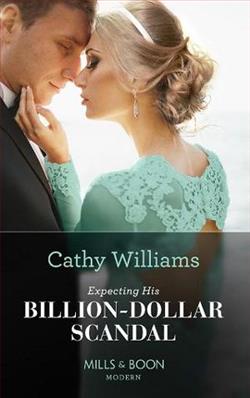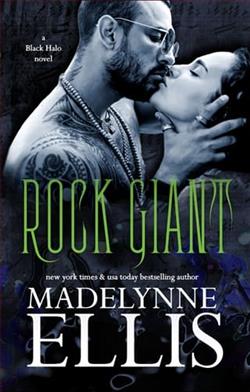Page 33 of Broken Queen
But then the modern frame of mind made a few members nervous about their image. What if the public found out about us? they wondered. We can’t kill women! Not publicly, anyway. So, they made some small, but deliberate changes. They still killed women, of course; they were just better at hiding it now. And officially, they stopped killing women at the Masquerades. After all, they weren’t that depraved. They spared the women, for god’s sake!
Except on special occasions, like my mother’s death.
Each wall was filled with symmetrical wooden boxes, slid inside of the stone slots. A sink dripped water in the back, next to a long stainless steel tray with a drainage hole. Must and wet brick stunk up the air. Hundreds of tombs lined each wall, each corner, every inch of this underground maze. Amazingly enough, my father’s first action as director was adding more secret entrances to the catacombs, and digging out more spaces for the tombs. Of course, these days, many of the corpses were burned in acid or disposed of in more modern, less incriminating ways. But there was a legacy here that my father refused to get rid of, as if living his life above thousands of dead bodies showed how powerful he was. He made sure to always add a few more each year to keep it topped off.
And I always found myself back here, wandering around like a mouse in a lab experiment.
In the back and behind a glass door, a large and thick handwritten book, weighing close to fifteen pounds, rested on a pedestal. I unlocked the glass door with a gold key, then skimmed through the logbook of the names added throughout the years. It was a catalog of corpses. Elegant cursive lines transformed into black scrawls as time progressed through the pages. Names upon names upon names.
Misty Owens.
Jessica Ronalds.
Lily Hall.
I scanned for any name starting with a ‘G.’ Gianna. Georgina. Grace. And finally, Birth Name: Gabby Boucher. Assigned Name: Gillian Dumas. The entry read: Sacrificed at the Masquerade by blood loss due to attempted beheading. Discarded by Gore Bloom.
Gore Bloom. My father.
My stomach twisted. She wasn’t the first woman my father had killed, but I still remembered that night. The Dentist had removed my canines, and I had held her body as life fled her eyes.
Shit.
I leaned on the wall. This information made the whole business exchange with Hazard complicated, and not in a good way. What would I tell Hazard? He’d jump to conclusions, ready to execute my father, driven by that impulse to always do what he wanted. And I couldn’t have that. Our entire family legacy rode on blood, and I honestly wouldn’t mind getting rid of my father—in fact, I often fantasized about it—but I also needed the Marked Blooms Syndicate to be under my control first. I needed confirmation that I had the members’ respect, and I couldn’t do that without a seat on the board, or my father’s support. I needed his blessing before he died.
I studied the entry again. Written underneath in small letters was a note: Sacrificed by Ernest Dumas.
Ernest Dumas. The newest board member. The last barrier that kept me from the board. The person to take my mother’s life. The same man who had humiliated me the night his wife died in my arms.
No one will take you seriously, he had said.
Now that information worked nicely with what I already had in mind. By giving Hazard a direct person related to his sister’s disappearance, he could put his impulses to good use. And we’d both get what we wanted.
But for some reason, that plan didn’t sit right with me. I didn’t mind screwing over Hazard—he seemed loyal, but I knew better than to trust anyone—but his sister had been put in the wrong situation, like my mother and so many other women. I didn’t like the thought of screwing her over.
My skin flushed, but I calmed myself down. We couldn’t kill my father yet, but I promised myself that we would. Eventually. But Hazard couldn’t know anything yet.
I took the steps back to the land of the living and wandered over to the supplies shed. The tall building shadowed me as I approached the front doors. Inside, the head estate managers—the one in charge of my father’s quarters—was on the phone. As soon as he saw me in his doorway, he ended the call.
“You didn’t have to do that for me,” I teased. He straightened his tie.
“What can I do for you, Miss Bloom?” he said, his shoulders stiff.
“Christopher Cox,” I said, pointing toward the main building. “Doing the renovations for my father’s private gym?” The estate manager nodded deeply. “What’s his story?”
“His story, ma’am?”
I rolled my eyes. Did he think I was stupid? “He’s not from the contractors we usually hire,” I said flatly.
He motioned for me to close the door, and I did. The room was quiet, the subtle hum of electricity buzzing through the fluorescent lights.
“You see, one of the contractors suggested him. Highly recommended him, even. I think he might have—” he cleared his throat, “—taken care of some business for him, you know.”
Which was code for ‘the contractor had hired him to kill someone.’
“Ah,” I said.
“We were in a position where we had to take him. But should Mr. Cox not measure up to the Bloom Estate standards, he can be discarded immediately, Miss Bloom. Has he disappointed you?”















